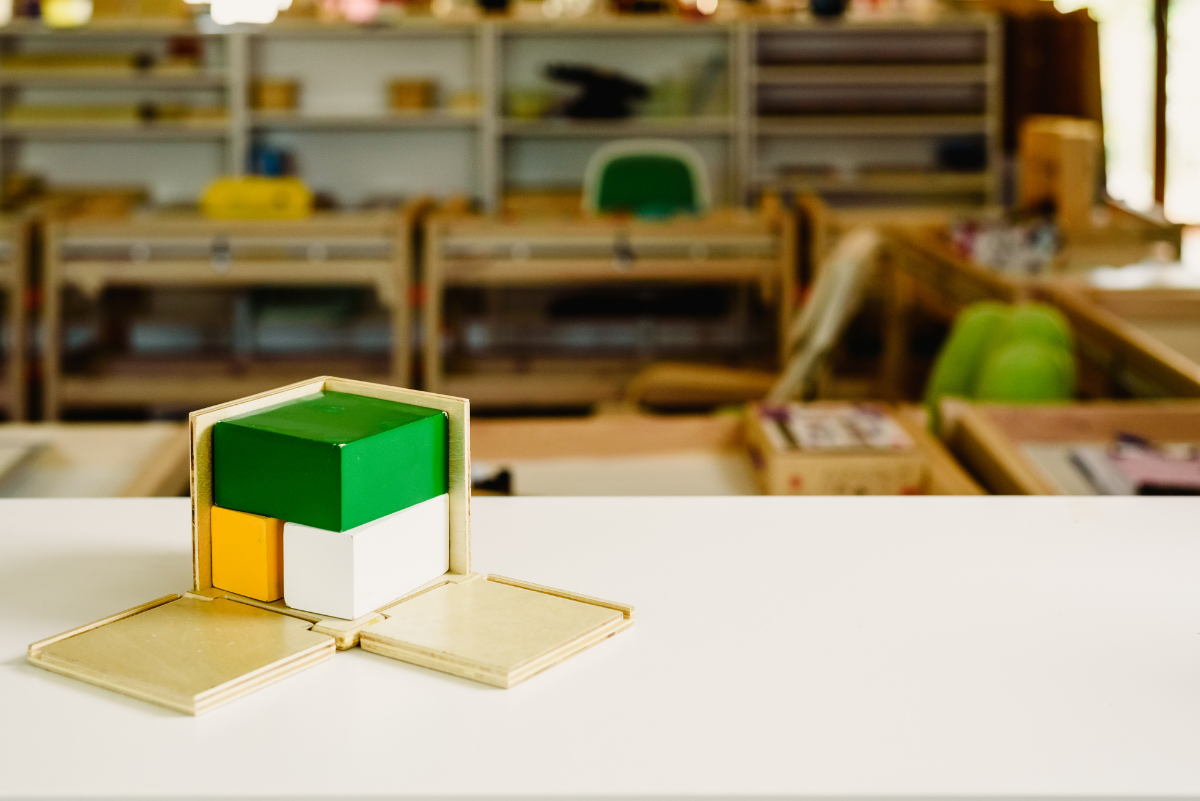
Montessori classrooms are just different from normal academic institutions. These environments are filled with a sense of calm and a love for learning – both of which stem from Maria Montessori’s fundamental beliefs.
The Legacy of Maria Montessori
Maria Montessori was an educator from the early 1900s with a story that is still told among academic circles today. At the time of her career, women were not well-accepted in either the medical or educational fields. Despite the barriers to her success, Maria pursued her dreams to become one of Italy’s first female doctors. Then, she turned her knowledge and talents towards helping those in need.
Dr. Montessori opened up her first academic institution in 1907. The Casa dei Bambini wasn’t as much of a school as it was a daycare center, and her students were impoverished children who were not cared for by the local system. Their parents were forced to work, and the kids were left to fend for themselves.
As she cared for these children and taught them basic life skills, Maria Montessori began to apply the scientific observational skills that she’d been taught during her medical education. She noticed that even the most “troublesome” children were actually quite intelligent and eager to learn, especially if they were given space to explore things on their own terms.
Based on her observations, Dr. Montessori developed an educational model that has lasted across the generations. Although she struggled to get attention during her own era, her work was revived towards the end of the 1900s. Today, there are hundreds of Montessori schools throughout the United States and even more scattered across the globe.
The Montessori Philosophy
The Montessori academic philosophy is based around the idea that children actually want to learn and gain new skills. However, kids must also go through various developmental stages to reach the full functions of adulthood. In order to learn, kids need to be able to interact with approachable materials and concepts in an environment that’s catered to their current needs.
Maria Montessori understood these truths and developed a plan to provide children of all ages with the right kind of learning environment. Her lesson plans included a mix of fun and practical activities that would prepare kids to succeed in the real world. From playing with clay to learning to cook, Montessori students are exposed to a variety of experiences, all while being given time to actually learn.
Teachers who follow the Montessori method work to create carefully-cultivated classroom environments where kids can learn at their own pace. Montessori teachers know how to encourage a child’s talents, help them through their difficulties, and find solutions that give every student a chance to learn.
Here at Austin Children’s Academy and at Montessori schools across the world, children learn to love learning. A Montessori education will give your kids the experiences they need to truly engage with life and inspire them with a sense of self-empowerment that lasts for a lifetime.





















